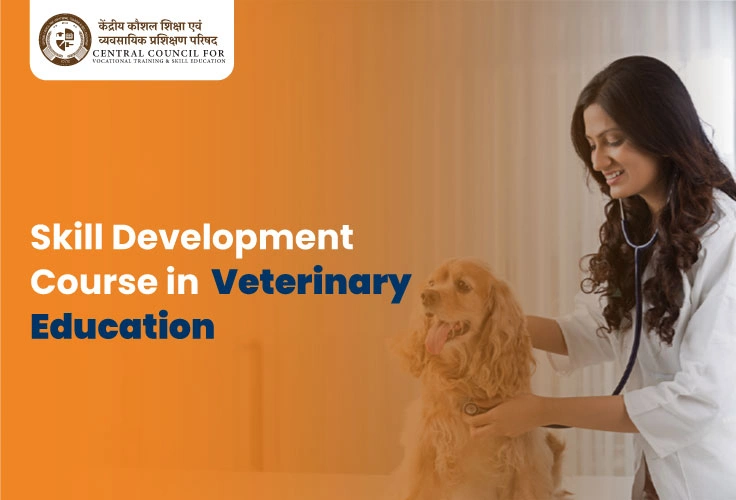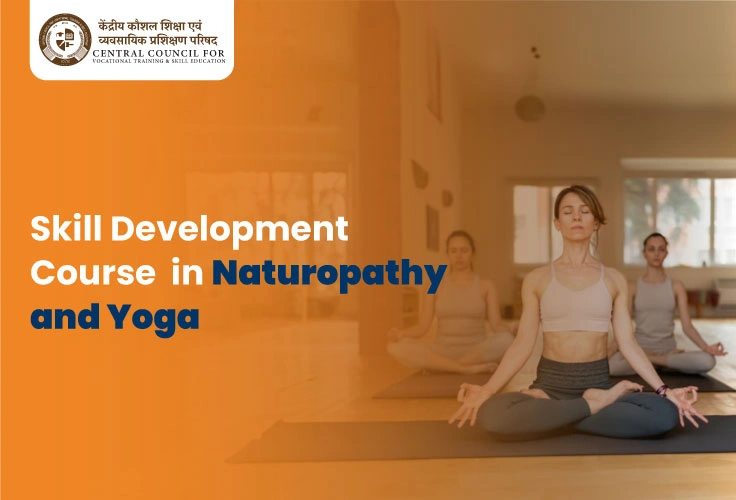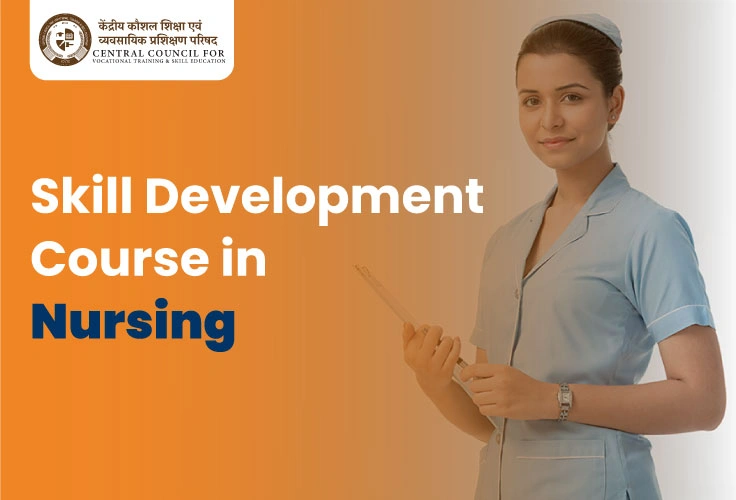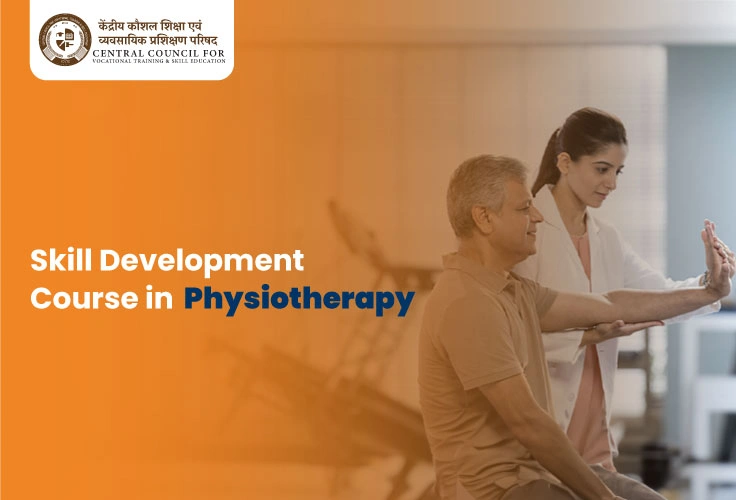- +91 8595350621
- info@ccvte.org
- C4/97B, Keshav Puram, Delhi-110035
Veterinary Education

Skill Development Program in Veterinary Education
Veterinary Education is the field of studies focused on the health management of pets, livestock, and wildlife. It encompasses key subjects such as Animal Anatomy and Physiology, Veterinary Pharmacology, Pathology and Disease Diagnosis, Clinical Medicine and Surgery, Preventive Medicine, Zoological Medicine, Veterinary Dentistry, Food Animal Medicine, Equine Medicine, Public Health and Epidemiology, Diagnostic Imaging, and Veterinary Ethics and Welfare. Veterinary education equips students with the knowledge and skills necessary to care for animals, diagnose and treat illnesses, and contribute to public health. The journey typically begins with a bachelor's degree in a relevant field such as biology or animal science. Following this, students pursue a Doctor of Veterinary Medicine (DVM) degree, a rigorous program that typically spans four years and combines classroom instruction with practical experience. The DVM curriculum covers subjects such as animal anatomy, physiology, pathology, pharmacology, and surgery. Students also gain hands-on experience through clinical rotations in various areas of veterinary medicine, including small animal care, large animal care, and exotic animal care.
Why did you choose Veterinary Education from CCVTE?
- A skill development course in Veterinary Education is tailored for students aspiring to careers in veterinary medicine and education.
- This course imparts practical skills and knowledge essential in the veterinary field and is endorsed by reputable organizations.
- The course is known for its flexibility and affordability, enabling students to complete it faster and at a lower cost than traditional full-time degree programs.
- The curriculum includes diplomas in Veterinary Science, Veterinary Medicine, and Animal Husbandry, covering key areas such as animal health management, surgical techniques, diagnostic methods, and emergency care.
- This comprehensive training provides a practical, cost-effective route to a fulfilling career in veterinary science.
- Improve job prospects and career growth by acquiring specialized skills that are highly valued in the veterinary field.
Specializations in Veterinary Education
- Small Animal Medicine
- Large Animal Medicine
- Exotic Animal Medicine
- Veterinary Surgery
- Veterinary Dermatology
- Veterinary Dentistry
- Veterinary Anesthesia and Pain Management
- Veterinary Oncology
- Veterinary Cardiology
- Veterinary Radiology and Diagnostic Imaging
- Veterinary Pathology
- Veterinary Pharmacology
- Veterinary Public Health
- Veterinary Epidemiology
- Veterinary Nutrition
Career Opportunities
Veterinary education provides a wide array of career opportunities in clinical practice, surgery, research, public health, and education. Each specialization allows veterinarians to focus on different aspects of animal care and contribute significantly to the well-being of animals and public health.
- Veterinarian
- Veterinary Researcher
- Wildlife Veterinarian
- Zoo Veterinarian
- Livestock Veterinarian
- Equine Veterinarian
- Public Health Veterinarian
- Veterinary Pathologist
- Veterinary Pharmacist
- Veterinary Educator
- Animal Welfare Officer
- Diagnostic Imaging Specialist
- Exotic Animal Veterinarian
Syllabus
|
3 Month |
6 Month |
1 Year |
2 Year |
|
Introduction to Veterinary Medicine and Basic Sciences |
Introduction to Veterinary Medicine and Basic Sciences |
Introduction to Veterinary Medicine and Basic Sciences |
Introduction to Veterinary Medicine and Basic Sciences |
|
Animal Anatomy |
Animal Anatomy |
Animal Anatomy |
Animal Anatomy |
|
Veterinary Skills and Diagnostics |
Veterinary Skills and Diagnostics |
Veterinary Skills and Diagnostics |
Veterinary Skills and Diagnostics |
|
Applied Veterinary Medicine and Practical Experience |
Veterinary Microbiology and Immunology |
Veterinary Microbiology and Immunology |
Veterinary Microbiology and Immunology |
|
Veterinary Pathology and Diagnostics |
Veterinary Pathology and Diagnostics |
Veterinary Pathology and Diagnostics |
|
|
Clinical Skills and Preventive Medicine |
Clinical Skills and Preventive Medicine |
Clinical Skills and Preventive Medicine |
|
|
Exotic Animal Medicine and Wildlife |
Exotic Animal Medicine and Wildlife |
Advanced Clinical Skills and Specializations |
|
|
Applied Veterinary Medicine and Practical Experience |
Public Health and Zoonotic Diseases |
Exotic Animal Medicine and Wildlife |
|
|
Laboratory Techniques and Advanced Diagnostics |
Public Health and Zoonotic Diseases |
||
|
Field Experience and Case Management |
Laboratory Techniques and Advanced Diagnostics |
||
|
Specialized Veterinary Medicine |
Field Experience and Case Management |
||
|
Applied Veterinary Medicine and Practical Experience |
Specialized Veterinary Medicine |
||
|
Advanced Clinical Skills and Practice |
|||
|
Health and Zoonotic Diseases |
|||
|
Applied Veterinary Medicine and Practical Experience |
|||
|
Practical Experience and Final Assessments |
Top Hiring Opportunities of Veterinary Education
- Private Veterinary Clinics and Hospitals
- Public Veterinary Hospitals
- Animal Shelters and Rescue Organizations
- Zoos and Wildlife Parks
- Research Institutions
- Pharmaceutical Companies
- Public Health Organizations
- Universities and Academic Institutions
- Agricultural and Livestock Farms
- Military and Government Services
- Telehealth Services
- Veterinary Diagnostic Laboratories
- Corporate Veterinary Services
- Animal Nutrition Companies
- Veterinary Consulting Firms
Other Healthcare Courses Provided by CCVTE
Frequently Asked Questions
A Veterinary Education course trains students to diagnose, treat, and prevent diseases in animals, providing care for both domestic pets and livestock.
Yes, practical components include laboratory work, clinical rotations, internships, and hands-on training with animals.
Yes, there is a consistent demand for veterinarians due to the need for animal healthcare, food safety, and public health services.
After completing a Veterinary Education program, career opportunities include working as a Veterinarian in clinics or hospitals, Animal Health Technician, Veterinary Researcher, or Animal Nutritionist. Graduates can also pursue roles in wildlife conservation, public health, or veterinary pharmaceutical companies. Opportunities exist in both private and public sectors, with options for specialization in areas like surgery, pathology, or dermatology.
CCVTE offers flexible study options for its Veterinary Education program, including part-time and online learning formats. Students can benefit from modular courses that combine online theory with practical in-person training. This flexibility allows learners to balance their studies with professional or personal commitments while ensuring comprehensive training in veterinary science.




